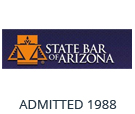Virtue Law Guardianship and Conservatorship Services

- Alternatives to Guardianship and Conservatorship
- Delegation of Parental Authority
A conservatorship and guardianship may be filed together if both are needed. If only a guardianship or only a conservatorship is needed the type of petition for appointment shall be filed that is needed for the individual in need of protection or what is needed to protect the assets of an individual.
GUARDIANSHIP
What is a guardianship?
A guardianship is the court appointment of an entity or an individual [the “guardian” who will provide or arrange for the care of and make personal decisions for and on behalf of an incapacitated adult or a minor. The person for whom the guardian is appointed is called the ward. Generally the adult ward is an individual who cannot make or communicate decisions that are reasonable to protect their own welfare due to some mental or physical condition. Generally if a guardian is appointed for a child it is because the child is a minor and there is no one else appropriate to provide the necessary care.
Who may serve as a guardian?
If the person is incapacitated, any competent person may be appointed to serve as the guardian. The law provides a list of priorities for the appointment. However, on occasion the court may appoint for good cause someone with lesser priority if it is in the best interest of the ward. If someone has already been appointed in another state or county, generally that person will have the highest priority. In situation where the court believes the ward has the capacity to make an intelligent decision regarding the choice of a guardian the ward’s choice will be the next highest priority. Thereafter the court will follow the list provided in the law for lower priorities.
If the person is a minor the court will appoint the best person who has applied to serve as guardian and if the court determines that such appointment is in the best interests of the minor. If the minor is age (14) years or older the court will allow the minor to nominate whom they want to serve provided the nominated person is qualified and has applied.
A person who hold a license to act as a guardian for someone and is paid to act in this capacity may serve as a guardian for either an incapacitated adult or minor. And, in some cases the court may appoint a public fiduciary of the county to act as a guardian for an incapacity adult but generally the public fiduciary does not act as a guardian for a minor.






How does a person become a guardian?
An interested person may file an application to have the court determine that a guardian is necessary. Thereafter a hearing is set and notice is given according to Arizona Statutes of the time and place of the hearing and service of the notice and the application must be personally served upon the ward and other family members are also notified according to Arizona statutes. An adult ward named in a petition must be represented by an attorney. There are specific guidelines regarding who can serve as the attorney for the adult ward. There is the requirement for an adult ward to have been examined by a physician in order for a determination to be made by the court that the adult needs to have a guardian appointed. In a minor’s hearing there is no need for a physicians’ report but the minor’s parents must consent to the appointment of a guardian for their minor child. And, in some cases the court may only appoint a temporary guardian for a limited period of time and for a limited purpose.
There are other rules of law to be followed depending upon each application for a guardian appointment that is filed with the court. A parent of a minor may appoint a guardian through a will. If both parents are dead and the nominated guardian in a will agrees to accept the responsibility the court may appoint this nominated persons. A minor the age of (14) or older may file an objection to the appointment and the nominated guardian.
Acceptance of the appointment submits the appointee to the personal jurisdiction of the appointing court. Once appointed the guardian has specific powers and duties pursuant to Arizona statutes.
What are the duties of the guardian?
A brief summary of the duties are listed. This is not the entire list of duties as the guardian shall follow the specific orders of the court that is provided at the time of appointment. In general the guardian has the duty for a minor to make decisions similar to those that would be made by a parent, except that the guardian is not legally responsible for or obligated to contribute to the support of the minor ward from the guardians own funds. The guardian will be responsible for decisions regarding social, educational, and religious activities. Any ward the age of (14) or older may voice their preference and the guardian has the responsibility to determine if the ward has preferences and take these into consideration. Unless the court order designates otherwise, the guardian will make decisions concerning appropriate arrangements for the wards personal needs, such as shelter, food and clothing. The guardian arranges for medical care and treatment even if the ward does not desire to have any medical care and treatment. The guardian is responsible to become or remain personally acquainted with the ward and maintain sufficient contact with the ward to know of the ward’s capacities, limitations, needs, opportunities, and physical and mental health. The guardian must always make decisions that are in the best interests of the ward and must always make sure that the ward is living in the least restrictive environment in which the ward can remain safe.
The guardian will care for an protect the wards personal effects; apply for monies necessary for the ward’s current support, care and educational need; keep specific track of monies received for the wards care and the expenditures made and maintain the wards funds in an account separate from the guardian.
The guardian will report annually to the court in writing of the wards residence, physical and mental health and whether circumstances continue to exist to continue the guardianship. Such report shall commence upon the first anniversary of appointment.
How does a guardianship end?
When the minor ward reaches the age of (18) the guardianship ends by operation at law. But the guardian is still responsible for filing for an order of final discharge of guardian. The guardian files a petition for discharge which states the reason for the requested order together with any supporting documentation, notice is given of date and time of hearing, the hearing occurs, the court will review the petition to consider the reason for the request and the appropriateness of the discharge.
Some of the reasons put forth to the court may be the death of the ward, the death of the current guardian, adoption of the minor, marriage of the minor, the minor’s attainment of the age of majority, removal of the guardian or the resignation of the guardian. If the court determines that discharge is appropriate an order of discharge of guardian is issued and the clerk closes the guardianship file. Upon termination of the guardianship the ward or the guardian’s successor may request an accounting of all monies received and expended during the guardianship and the guardian has the duty to comply with this request.
CONSERVATORSHIP
What is a conservatorship?
A conservatorship is the court appointment of an entity or an individual [the “conservator”] when the court determines that a minor or an adult owns money or property that requires management or protection that cannot otherwise be provided or has affairs that might be jeopardized or compromised or prevented due the person’s minority minor’s.
 For an adult the court must determine if the adult cannot make or communicate decisions that are reasonable regarding assets and other property to protect or govern such property or assets. In the case of a minor who has received monies from having had an accident or has received monies through a will or policy of insurance a conservatorship may be granted so those funds are protected for the expense of the care and/or education of the minor.
For an adult the court must determine if the adult cannot make or communicate decisions that are reasonable regarding assets and other property to protect or govern such property or assets. In the case of a minor who has received monies from having had an accident or has received monies through a will or policy of insurance a conservatorship may be granted so those funds are protected for the expense of the care and/or education of the minor.
Who may serve as a conservator?
The minor or the person to be protected or any person who is interested in the adult or minor’s estate affairs, including the minor’s or adults parents, custodian or guardian or any person who may be adversely affected by an inefficient management of the minor’s or adult’s estate and affairs may file a petition for appointment. There are other persons who may file a petition for appointment and by statute the priorities for appointment are applicable.
How does a person become a conservator?
There are very specific procedures to follow in filing to become appointed as a conservator either for a minor or an incapacitated adult which are not enumerated with such specificity in this brief summary. In general, you look to the priorities as determined by the statutory list of priorities for appointment. Anyone one listed in the statute for priorities may file for an appointment.
In general, a petition is filed, a hearing is set, the required notice of hearing is complied with, and the requirements of a court appointed attorney to represent the person in need of protection is complied with. If the person who has assets and property has no attorney then one may be appointed by the court to represent the person in the proceedings if they are a minor.
In every case involving the appointment of a conservator for an adult, the court must appoint an attorney to represent the person in need of protection unless the person already has independent counsel of his or her own choice. For an adult an investigator will be appointed if the alleged disability is mental illness, mental deficiency, mental disorder, physical illness or disability, chronic use of drugs or chronic intoxication.
The appointment for a medical professional to evaluate the person in need of protection is not automatic. The court has discretion to appoint such a medical professional and may exercise that discretion on the petition of an interested or on the court’s own motion. Again, this is only a limited summary of the procedures for appointment. Anyone considering filing such a petition needs to follow the Arizona Statutes and comply with all the required procedures based on the type of conservatorship being filed. Upon hearing the court makes a determination of the necessity for appointment of a conservator and the conservator appointed submits to the personal jurisdiction of the appointing court.
What are the duties of the conservator?
Orders are issued to the conservator, upon acceptance of the appointment outlining specific duties which include but are not limited to the following summary. The Conservator shall locate and identify the assets of the protected person. The conservator shall take possession of property and title such property in the name of the conservatorship. The conservator shall title all accounts of the protected person into the name of the conservatorship. The conservator shall file an inventory with the court within a specific amount of time after appointment. The conservator shall keep detailed records of assets, receipts and expenditures that the conservator makes on behalf of the protected person. The conservator shall create a budget and comply with such budget. An annual accounting is made to the court by the conservator each year on the anniversary date of the appointment. In some cases of appointment the court may order that an account be restricted which means that no expenditures can be made without court approval prior to the expenditure. The conservatorship continues until either the death of the protected person or upon the minor protected person reaching 18 years of age. A court proceeding is required with a final accounting before the conservator is discharged and any prior required bond is exonerated (canceled).
If the minor is at least (14) years of age the court must consider the minor’s choice of counsel. If the person is incapacitated, any competent person may be appointed to serve as the guardian. The law provides a list of priorities for the appointment. However, on occasion the court may appoint for good cause someone with lesser priority if it is in the best interest of the ward. If someone has already been appointed in another state or county, generally that person will have the highest priority. In situation where the court believes the ward has the capacity to make an intelligent decision regarding the choice of a guardian the ward’s choice will be the next highest priority. Thereafter the court will follow the list provided in the law for lower priorities.
 If the person is a minor the court will appoint the best person who has applied to serve as guardian if the court determines that such appointment is in the best interests of the minor. If the minor is age (14) years or older the court will allow the minor to nominate whom they want to serve provided the nominated person is qualified and has applied.
If the person is a minor the court will appoint the best person who has applied to serve as guardian if the court determines that such appointment is in the best interests of the minor. If the minor is age (14) years or older the court will allow the minor to nominate whom they want to serve provided the nominated person is qualified and has applied.
A person who holds a license to act as a guardian for someone and is paid to act in this capacity may serve as a guardian for either an incapacitated adult or minor. And, in some cases the court may appoint a public fiduciary of the county to act as a guardian for an incapacity adult but generally the public fiduciary does not act as a guardian for a minor.
Once appointed the guardian has specific powers and duties pursuant to Arizona statutes. Among those duties is the duty to become or remain personally acquainted with the ward and maintain sufficient contact with the ward to know of the ward’s capacities, limitations, needs, opportunities, and physical and mental health.
How does a conservatorship end and the conservator get discharged?
The conservator petitions the court for termination of conservatorship, an approval for the final accounting and the decree for the settlement and distribution of the estate. A hearing occurs and the court reviews the request the accounting and if everything is in order the court will issue an order terminating the conservatorship and approving the final accounting.
Thereafter, the conservator petitions for an order of discharge of the conservator. A hearing is held and the court noting that all the duties inherent in completing the duties of the final accounting and distribution of the estate and noting that the conservatorship has been closed by prior court order the court will issue its order of discharge of the conservator.
In many cases both the petition for approval of final accounting and for the decree of settlement and distribution of the estate together with the request for the discharge of the conservator is conducted at the same time.
Contact Pamela Virtue Today
When you need an experienced and adept Arizona probate lawyer to help you with Probate filings and processes, contact Pamela A. Virtue at Virtue Law Firm. Not only is she a well practiced probate lawyer, but she and her associates can help you with a variety of personalized services. With discounts for veterans and active military, as well as seniors, Pamela Virtue is dedicated to helping you with your Scottsdale estate planning and management.
Virtue Law Firm
4525 N. 66th Street, #134
Scottsdale, AZ 85251
Office: 480-941-0710
Email: [email protected]
Website: arizonaestatelawyer.com
View Map | Get Directions
